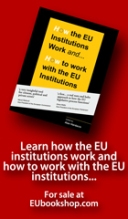The U.S. authorities charges against Goldman Sachs have revealed the fact that the SEC apparently still does not fully understand the symbiotic relationship between the dealer and the hedge fund, The Institutional Risk Analytics reports. IRA points out that it’s often difficult, if not impossible, to tell where the dealer’s interests end and those of the hedge fund begin, especially when the dealer and the fund seem to be working in concert to create securities that are being sold to third parties.
“This episode is a terrible mess and, to us at least, illustrates why the OTC markets for securities and derivatives need to be regulated out of existence.”
“If the global financial markets have been reduced to nothing more than beggar thy neighbor, then we all have a big problem,” IRA writes in its latest news letter. The Goldman Sachs-case illustrates why the OTC markets for securities and derivatives need to be regulated out of existence – or at least into compliance with norms of disclosure and fair dealing that would render such strategies impossible, the IRA says.
“Whereas in the trades with Paulson GS was helping a client create and then sell short a CDO that was being sold to another client, in the case of TCW the GS firm was helping a client buy toxic loans to be contributed to a CDO in the knowledge that doing so would cause losses to a regulated insurer, AIG. The activities of GS to harm AIG make the subsequent payments by AIG to GS, using money from the US Treasury, seem all the more outrageous,” the risk analysts at IRA writes.
“But the other thing that really bothers us about both the TCW transactions and the more recent revelations about GS and the Paulson firm is the fact that the SEC apparently still does not fully understand the symbiotic relationship between the dealer and the hedge fund. In our view, the funds that were involved with these transactions and many, many more examples in the OTC marketplace, did not have an arm’s length relationship with the dealer. Hedge funds exist at the sufferance of the dealers, who finance and execute and act as custodian for their various strategies and use the funds as short-term storage for inventory.”
“In the case of Paulson, the information provided by the SEC makes it seem as though Paulson was the party which initiated these transactions and, according to the SEC, paid GS $15 million to arrange and market these CDOs to investors. Paulson was also apparently working as an advisor to GS and collaborating with GS regarding investment strategy. A spokesman for Paulson told The New York Times that all of their dealings with GS and other parties were on “an arm’s length basis.” We believe that reasonable people can differ on this issue. We also suspect that the nature and the extent of the relationship between GS and Paulson will be the subject of extensive legal and political inquiry in the weeks and months ahead.”
*
“But for us, the bottom line is that hedge funds often times are merely extensions of the dealers with which they interact. It is often difficult if not impossible to tell where the dealer’s interests end and those of the hedge fund begin, especially when the dealer and the fund seem to be working in concert to create securities that are being sold to third parties. This episode is a terrible mess and, to us at least, illustrates why the OTC markets for securities and derivatives need to be regulated out of existence — or at least into compliance with norms of disclosure and fair dealing that would render such strategies impossible.”
“If the global financial markets have been reduced to nothing more than beggar thy neighbor, then we all have a big problem,” Institutional Risk Analytics concludes.
When Will This All Unfold?
Using efficient markets hypothesis, this information is freely available so the effects of the end of the purchase program should be fully priced into the financial markets.
“So why didn’t bonds fall dramatically in anticipation?” chief executive officer of Absalon, Alan L. Boyce, asks in a commentary.
Absalon is a joint venture between George Soros and the Danish financial system that is assisting in the organization of a standardized mortgage-backed securities market for Mexico.
Alan Boyce has worked in the past for Countrywide Financial, Bankers Trust and the Federal Reserve Board.
Mr. Boyce is also currently president at Adecoagro.
He gives the following explanation to the question:
“There are a couple of potential explanations. First, financial markets are not efficient. They are not the best prediction of what will happen in the future. As recent events confirm, financial markets are quite myopic, able to see at most three months ahead,” Boyce writes.
“And markets can be distorted when participants are incentivized by factors other than profit. The Fed’s participation in the bond markets was not driven by a desire to profit from their purchases. They systematically purchased mortgages (and Treasuries) without regard to price. This can have a distorting effect that is not recognized until their influence on the markets is removed.”
“Second, their involvement in markets not only influences the prices of assets but they influence the behavior of other market participants. As discussed above, many real money buyers synthetically created mortgages because of the lack of supply due to FPP.”
 “Finally, the Fed removed a huge stock of mortgages from the pool of available mortgages in the secondary market. The impact will be felt for some time until the flow of new mortgages begins to trickle into the secondary market providing additional liquidity. In the meantime, there is a real danger of a buyer’s strike as participants sit back and wait to see what happens now that the program is finished. This is happening at a time that the economic data is coming in strong adding to pressure in fixed income markets,” Boyce points out.
“Finally, the Fed removed a huge stock of mortgages from the pool of available mortgages in the secondary market. The impact will be felt for some time until the flow of new mortgages begins to trickle into the secondary market providing additional liquidity. In the meantime, there is a real danger of a buyer’s strike as participants sit back and wait to see what happens now that the program is finished. This is happening at a time that the economic data is coming in strong adding to pressure in fixed income markets,” Boyce points out.
“If markets were to become unglued, the Fed may purchase more mortgages and Treasury debt. The question is how other central bankers and market participants would react to this. Foreign central bankers will likely snap and become sellers if the Fed decides to monetize more debt. Also, domestic and foreign market participants would likely take it as a sign that the Fed is politically unable to exit the mortgage market and unable to exit quantitative easing.”
“As FPP ends, there is the real potential for unintended consequences in domestic and foreign markets,” Alan L. Boyce warns.
Related by the Econotwist:
Goldman’s Collateralized, Securitized And Synthesized Fraud
Goldman Sachs Charged With Fraud – Here’s The SEC filing
Goldman Sachs: “Damn American Bastards!”
AIG: What Did FED Bail Out and Why?
EU Wants Answers From Wall St. On Greek Debt
The Bailout Package Under The Christmas Tree
2010 Analysis: Collapse of Credit
The H5F-TV Toolbar; built-in radio- and TV channels, news ticker and email notifier.
*
Related articles by Zemanta
- Goldman Sachs SEC Case May Hinge on Meaning of Word ‘Selected’ (businessweek.com)
- Geithner Says U.S. Needs Reforms to Move Swaps ‘Out of Dark’ (businessweek.com)
- Goldman Sachs / SEC: political witch-hunting is no way to change a market (freddestin.com)
- Goldman v. SEC: It’s All About Materiality (blogs.wsj.com)



![Reblog this post [with Zemanta]](https://i0.wp.com/img.zemanta.com/reblog_e.png)




























Pingback: Global Forex Trends « The Swapper
hi there
i’m so glad that i saw this website. that post was so nice. thanks again i signed up to this site.
are you going to post similar posts?
Thanks for the visit, and the feedback.
More on derivatives at The Swapper.
BestWishes
econotwist
Debt consolidation by combining all your debts. For example, if you have store cards,Credit cards, personal loans, mortgages and other debts, you probably pay hundreds or